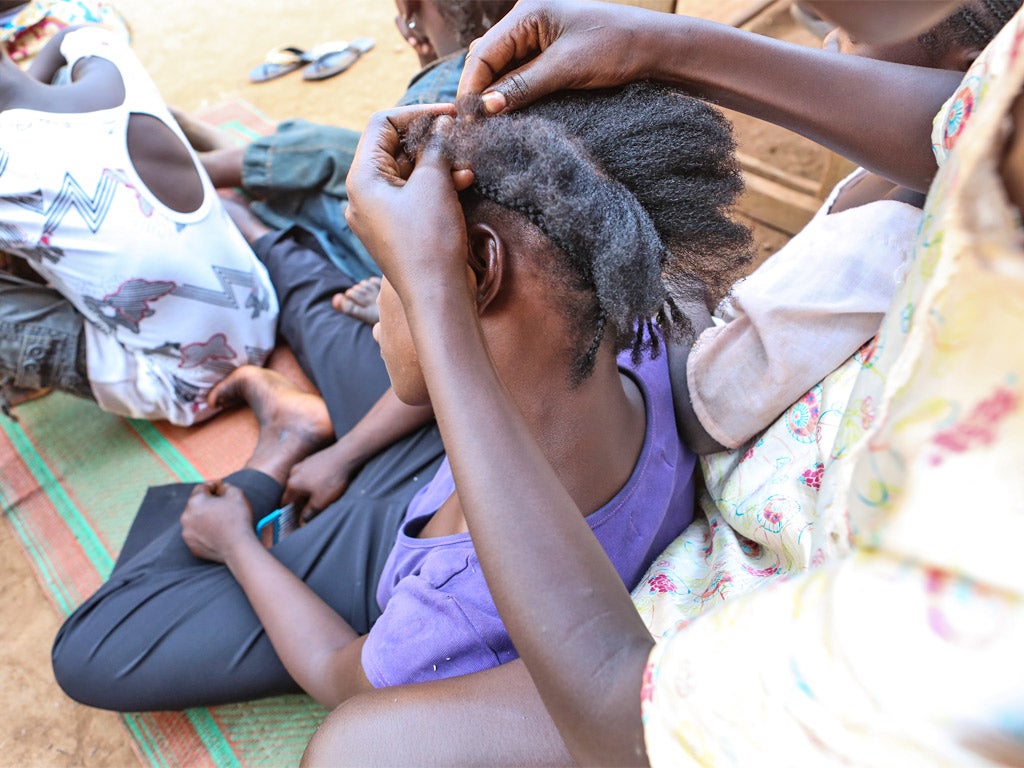Unicef urges a global ban on the use of children in conflicts

Conflict is like a terrible fire that ceases and flares, spreading through communities and across borders, making it very difficult to calculate the numbers of children affected or associated with armed forces and armed groups. Unicef estimates that thousands of girls and boys in more than 20 countries around the world are taking part in hostilities.
Protecting children from harm is at the heart of Unicef’s mandate and has been since its inception more than 60 years ago. The United Nations Convention on the Rights of the Child, which guides Unicef’s work, specifies that every child, everywhere, has the right to survive, grow and be protected from all forms of violence. But children who participate in conflict are exposed to egregious and sustained violence in all its forms – as witnesses, victims and forced participants.
They may be used as combatants, spies, messengers, porters and cooks, and for forced sexual purposes. Many are abducted or forcibly recruited, while others are driven by poverty, abuse and discrimination, or revenge for violence enacted against them or their families. In the most extreme instances children are used on the frontlines of battle and may be forced to commit terrible atrocities against their own families, friends and communities.
The brutalising impact on their mental and physical well-being not only breaches the most fundamental human rights, it also represents a grave threat to durable peace and sustainable development, as cultures and cycles of violence are perpetuated, with the consequences passed down from one generation to the next.
The recruitment and use of children are grave violations under international law and it is a war crime to conscript, enlist or use children under 15 in armed conflicts. Unicef believes any child under the age of 18 should be protected from the dangers of associating with armed groups and promotes an optional protocol within the UN Convention of the Rights of the Child, a principle which 151 State parties have so far agreed to ratify.
Unicef, together with partners, is ever increasing its efforts to prevent and end all recruitment and use of children for armed conflict and sexual violence and is working together with partners and Governments to make sure that children are safely reunited with their families and communities and given counselling, life skills and vocational training to help them cope with the terrible realities they have experienced, to begin life anew and enable them to earn money in a safe and sustainable way. In 2012, more than 5,300 children associated with armed forces or armed groups were released and reintegrated in nine countries with the help of Unicef and partners.
Unicef is also committed to holding accountable those responsible for the abduction and forced recruitment, whether government forces or armed opposition groups. This means that the violations of the laws of war that affect children need to be properly monitored and reported, so that perpetrators can be investigated and prosecuted under national or international law.
While opinion can be divided, Unicef holds that children who are unlawfully recruited by armed groups must be primarily considered as victims of violations against international law and not as alleged perpetrators and treated in accordance with international standards for juvenile justice with alternatives to judicial proceedings sought where possible.
But the issue of child soldiers must also be tackled in the wider context of all forms of violence against children. Violence destroys lives – in every country and at all levels of society, and when it occurs, the physical wounds or bruises may disappear but the mental scars take longer to heal, if they ever do.
At no time or place is violence against children ever acceptable or can it be justified. If no one talks about violence, or calls for action against it, perpetrators believe their actions are tolerated and victims believe that there can be no end to the misery and horror.
Laws must be enacted and enforced and social norms that promote the continuation of violence must be changed. Governments cannot do the job alone. It is up to each and every one of us to speak out and to help drive change.
Unicef is enormously grateful for the support received, which enables us to negotiate for the release of children from armed forces and armed groups. Since 1998 we have secured the release of more than 100,000 children.
Children received psychosocial support, health care and other essential services. They are reunited with their families and communities, and provided with educational opportunities and life skills to help them in their return to civilian life. But even then our work is not complete and we cannot act alone. We need governments, civil society partners, communities and individuals to join in our efforts to protect children and prevent them from the atrocities of war.
Susan Bissell, Unicef’s Global Chief of Child Protection on violence against children
Join our commenting forum
Join thought-provoking conversations, follow other Independent readers and see their replies
Comments